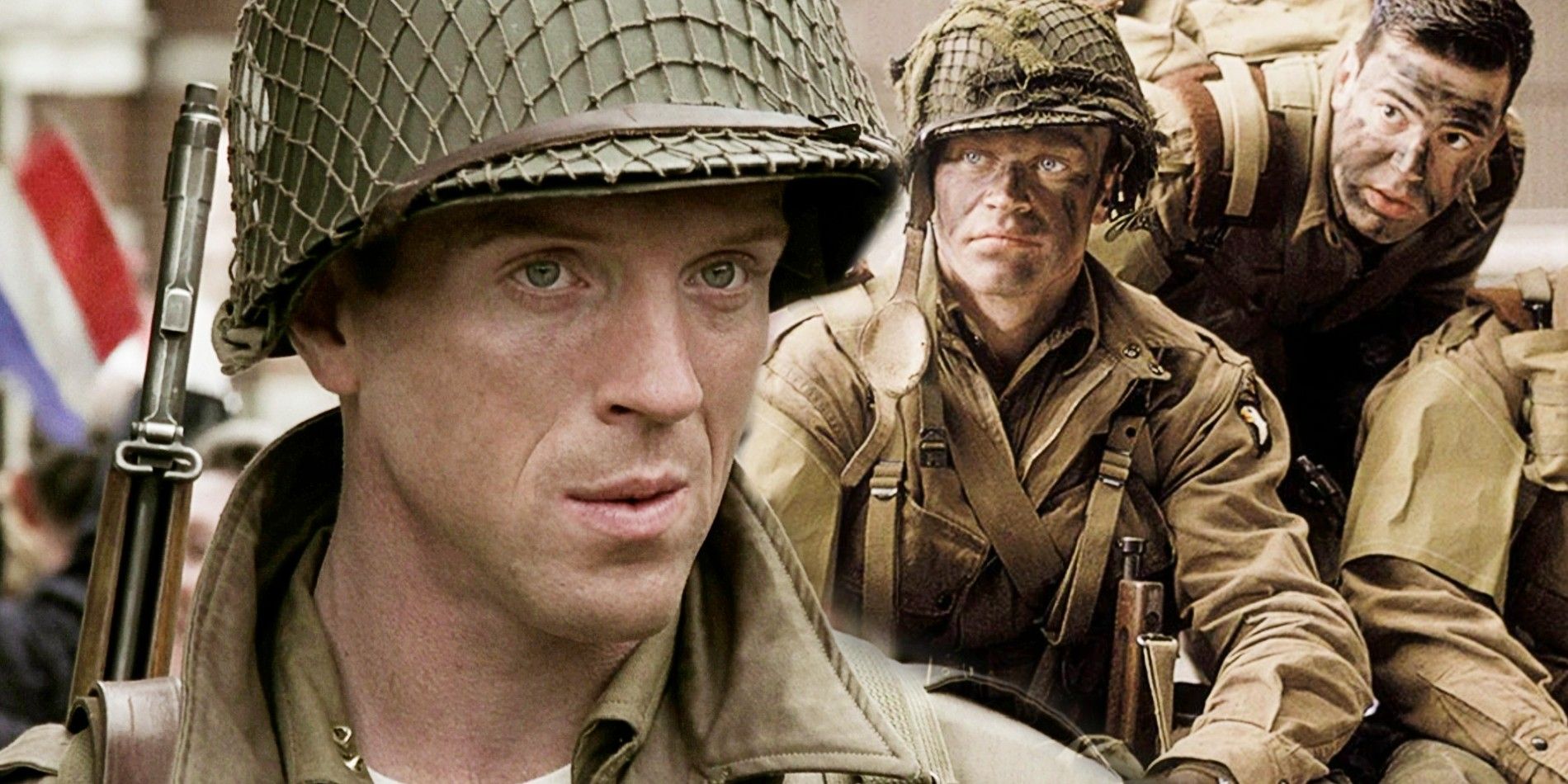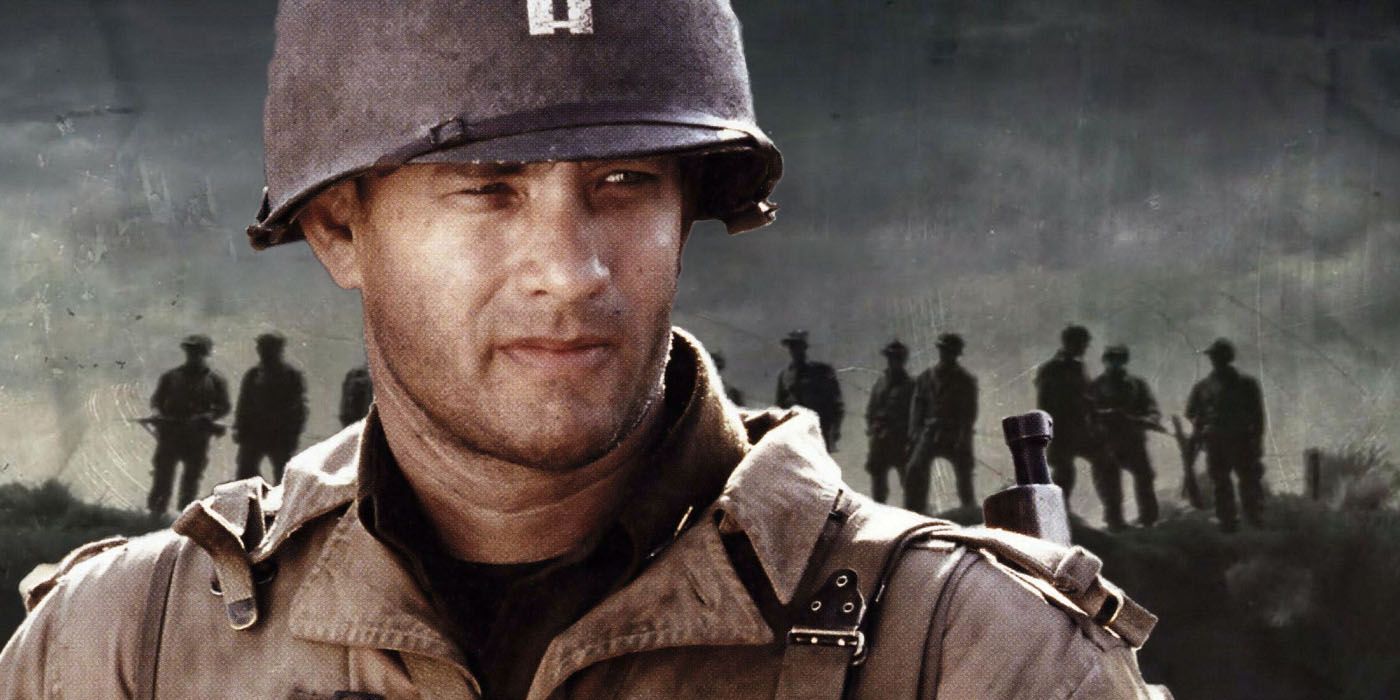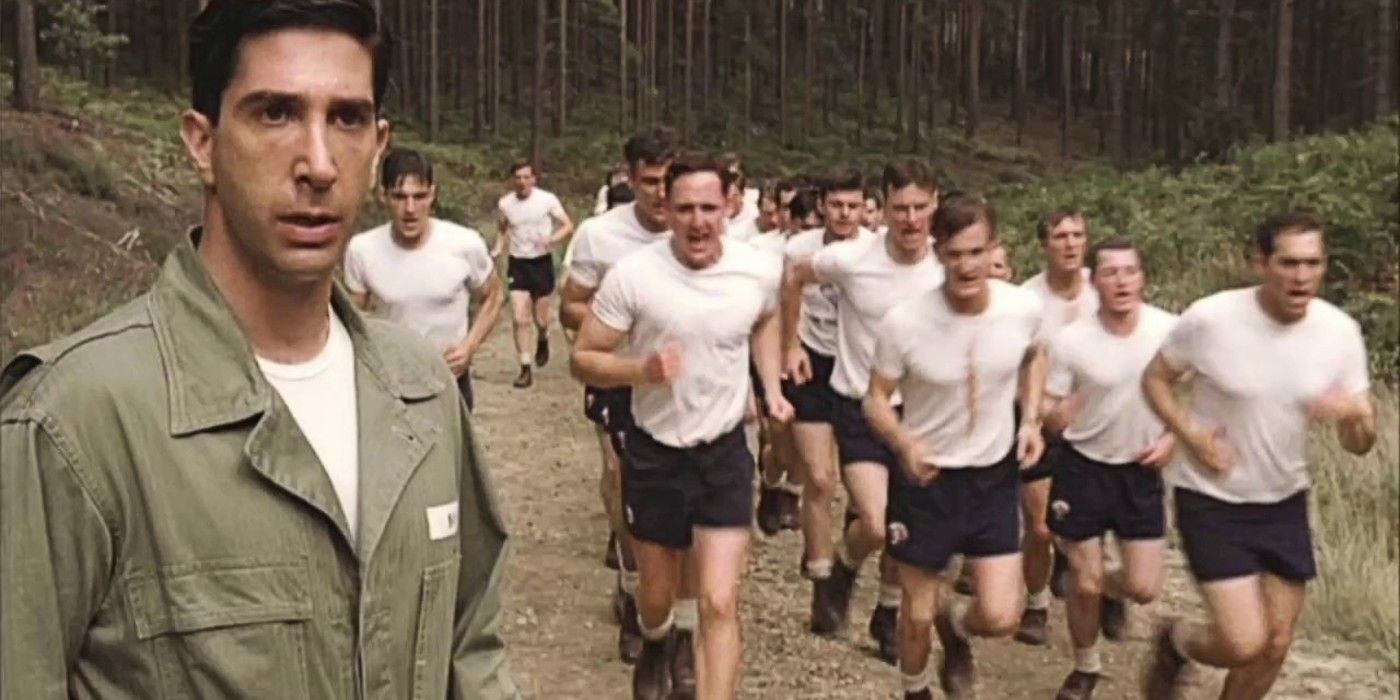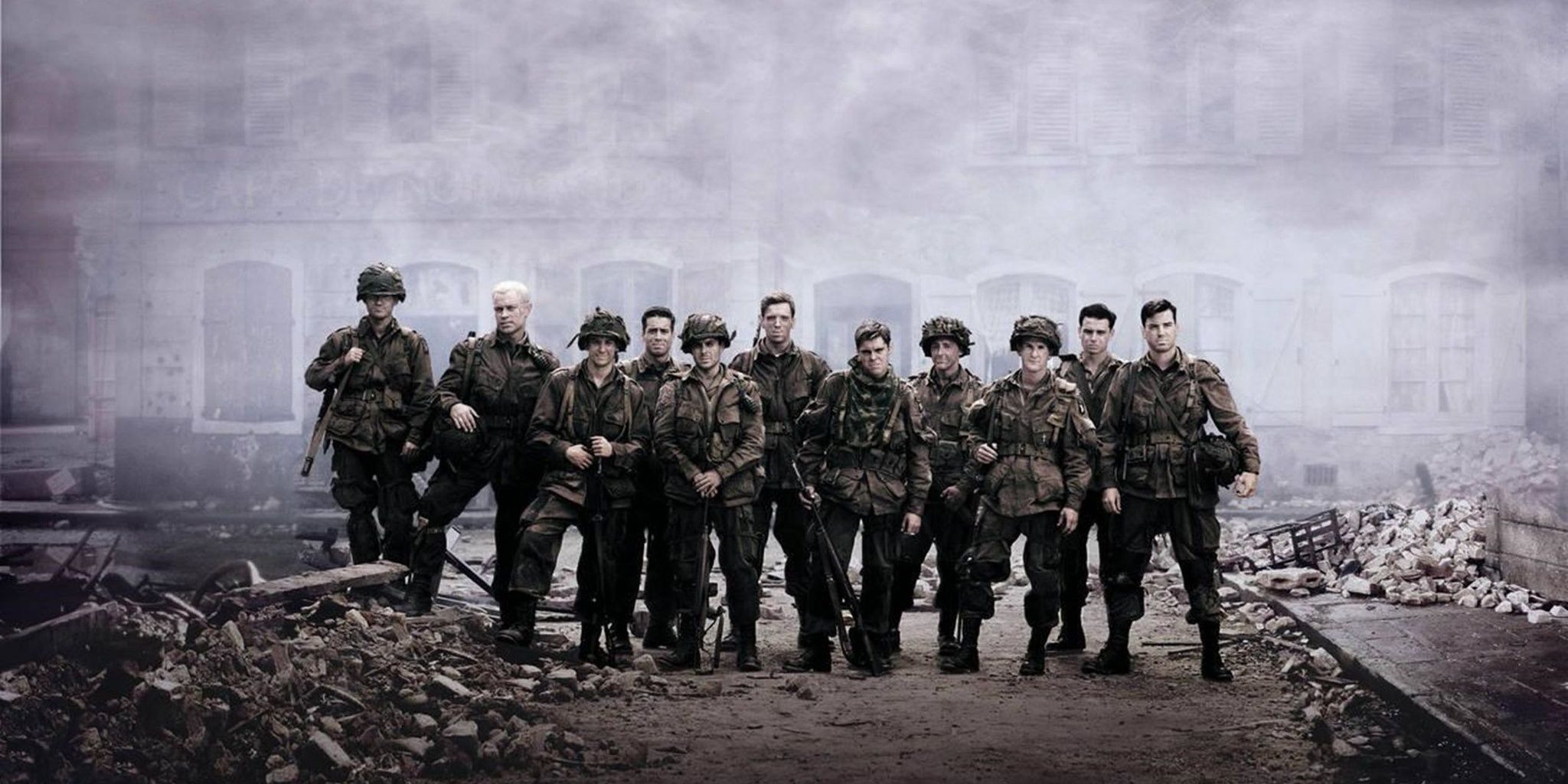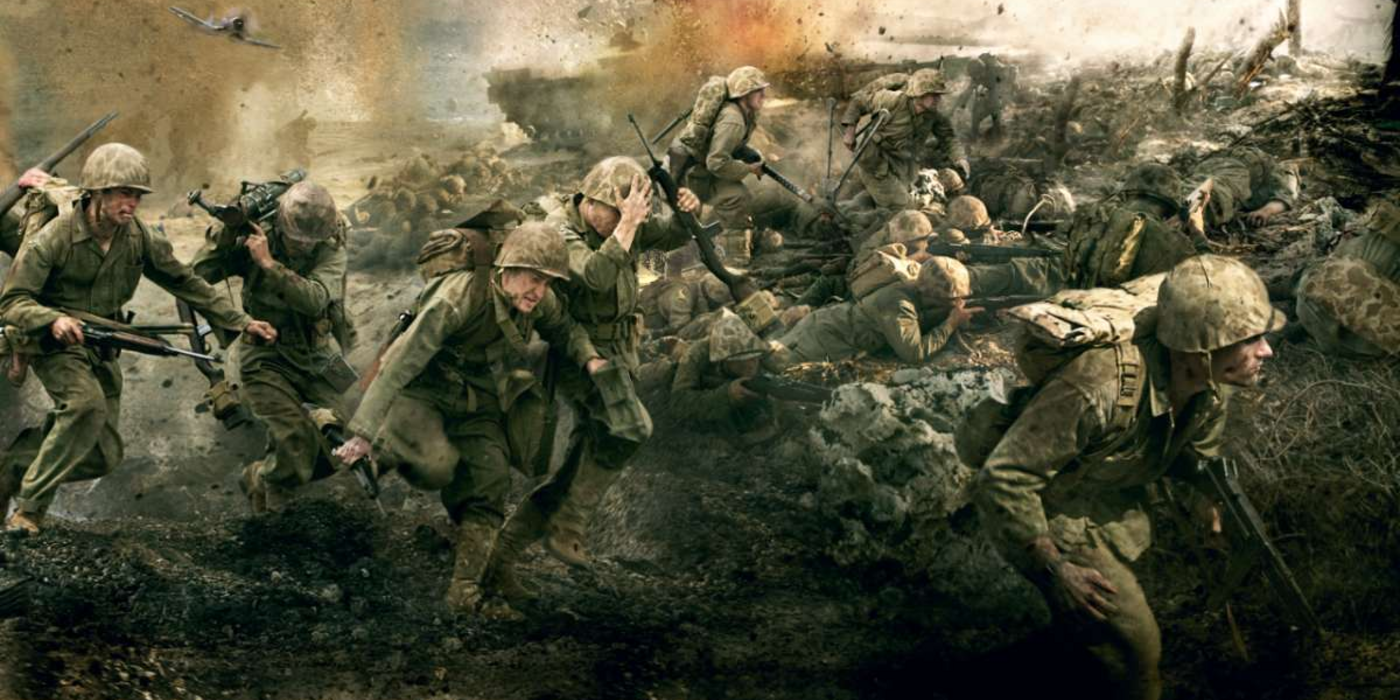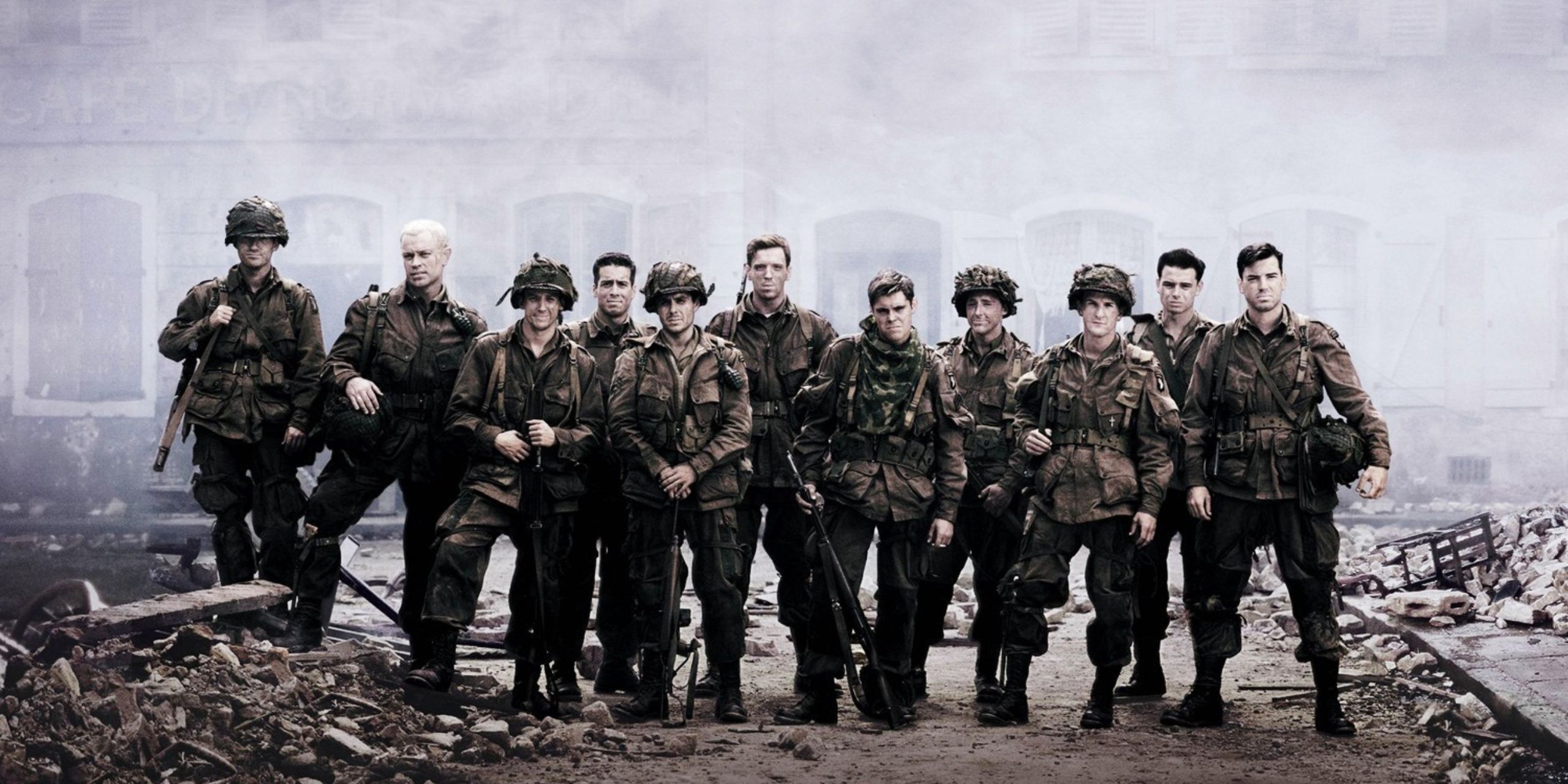Band of Brothers has turned twenty years old, so how does the acclaimed World War II miniseries, which some have called the greatest TV show of all time, hold up? Based on the 1992 book of the same name by author Stephen E. Ambrose, the HBO series followed up Steven Spielberg and Tom Hanks’ Saving Private Ryan success with a high-budget, emotional story about the U.S. Army’s 101st Airborne Division during World War II’s European theater – specifically, E Company, or Easy Company. Band of Brothers stars an ensemble cast including Damian Lewis, Ron Livingston, Neal McDonough, Donnie Wahlberg, David Schwimmer, Kirk Acevedo, and Eion Bailey.
Created by Hanks and Spielberg after their collaboration on Saving Private Ryan, Band of Brothers premiered on HBO on September 9, 2001 and ran for ten episodes. It’s significant success and presence in pop culture led to two follow-up series – The Pacific in 2010, which followed U.S. marines through the war’s Pacific theater, and Masters of the Air, a close look at America’s Eighth Air Force that’s currently in production. Through the years, Band of Brothers has remained one of the best-respected shows in the history of modern television.
But after twenty years, does Band of Brothers hold up? TV has come a long way in the two decades since the show premiered, with budgets getting bigger and bigger as streaming becomes the medium’s dominant venue. With the 20th anniversary here, it’s the perfect time to take a look back at Band of Brothers, why it was so successful, and how well that success has kept up in the years since.
Band of Brothers' Initial Reception In 2001
When it was first released on HBO in 2001, Band of Brothers earned high praise from critics and viewers alike. Publications from Variety and AV Club to The Chicago Tribune and The New York Times all applauded the show for its stunning audiovisual design, compelling ensemble, historical loyalty, and effective balance of its themes of heroism with the ugly violence of war. There were some outliers, including The Washington Post, which called the series “A glorious bungle” that “suffers from disorganization, muddled thinking and a sense of redundancy.” For the most part, though, Band of Brothers was met with a very positive reception from the beginning. It currently holds an impressive 94 percent certified fresh rating on Rotten Tomatoes.
How Band of Brothers Has Remained Popular
In the two decades since it first premiered, Band of Brothers has retained a lofty standing in the pantheon of contemporary television shows. That enduring popularity is due to several things, not least among them the fact that there hasn’t really been anything else like it in the years since, other than The Pacific. World War II movies aren’t nearly as common as they once were, largely because the 20th century saw so many of them that very little material was left untapped. Band of Brothers is, in some ways, the ultimate World War II European theater film, made better by being split across ten episodes rather than being crammed into two hours.
Aesthetically, the series has also aged quite well. The cinematography, sound design and visual effects – all amplified by the show’s enormous budget – still hold up quite well today, helping the series avoid the classification of being old that so often pushes shows into obscurity over time. Like other HBO series that aired in the late 1990s and early 2000s, like The Sopranos and The Wire, Band of Brothers is part of a distinct and important era of TV production that has kept it from fading in relevance. Many fans would call Band of Brothers timeless.
Band of Brothers' Depiction & Storytelling Compared To Other War Shows
Making a war movie or show that’s both nuanced and compelling is a challenge. There’s a delicate balance in telling stories of bravery and valor on the battlefield while also acknowledging the complex and often ugly sociopolitical motivations behind the battles themselves. The most successful modern war dramas spend as much time looking at the messiness and violence behind the fighting – on all sides – as they do actively displaying the heroism of the soldiers themselves.
In a positive way, Band of Brothers still leans heavily on its tails of heroism as it tells the true stories of the ordinary men who gave of themselves to help protect innocent lives during the war. Because each episode focuses on a different member of Easy Company, the series is able to avoid the pitfalls of blind hero worship and focus more on the amazing things the soldiers were able to endure and accomplish together through shared bravery and mutual encouragement. World War II’s European theater, while certainly not devoid of complications, is about as close to an uncontroversial war as modern history has ever seen. Hitler’s Nazi regime was an unequivocal blight on the world, and those who fought to dismantle it undeniably did so valiantly and heroically.
All that being said, the story of Band of Brothers doesn’t shy away from the gruesome horrors of war. There is nothing exciting about combat as it's depicted in the show – no joy in the violence. In fact, Band of Brothers goes out of its way to show how such views of war are dangerous and harmful. By focusing on a whole company rather than just a couple of characters, the series shows war from all of its angles, through the eyes of many different kinds of men in many different sorts of roles. The triumphs in the show rarely come when the enemy is demolished, but rather, they come when the soldiers endure through their united will. In Band of Brothers, war is something to be avoided if possible and survived if inevitable, not something to be hoped for in a foolish quest for valor. The series balances the heroism of its characters with the deplorable nature of their circumstances, crafting a narrative that manages to reach beyond simple war stories and say something more essential about brotherhood and the human spirit.
Band of Brothers Is Still Visually Stunning - Why?
At the time it was produced, Band of Brothers was the most expensive miniseries ever put to film. The whole show had a Hollywood blockbuster budget of $125 million, or an average of $12.5 million per episode. For reference, season 1 of The Mandalorian, a modern prestige streaming show in one of the biggest media franchises of all time, budgeted about $15 million per episode. Looked at that way, it’s no wonder that Band of Brothers’ visuals has held up so well. Whole towns were recreated from the show’s production location in England, with excruciating attention being paid to every detail. Of course, credit must also be paid to the direction and cinematography of the show, which brought the battles of World War II to the screen in hauntingly vivid ways that have still rarely been matched or exceeded.
Is Band of Brothers Still "The Best Show Ever"?
There are those through the years who have thrown Band of Brothers into the conversation of being the greatest TV show ever made. After twenty years, it still holds up quite well, but is it truly in that absolute top tier? Of course, the answer is impossible to say. There’s too much variance from one show to another, and it’s impossible to objectively rank them when they all try to do such very different things. What can be said though is that as a series about war and human endurance, Band of Brothers may be best in class. It accomplishes what it sets out to do to near perfection. There are many who may never be e4specially interested in the very specific focus of the show, but there also may never be anything quite like Band of Brothers again.

